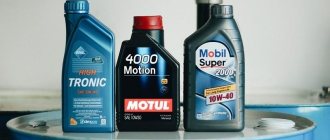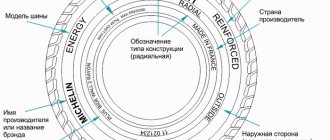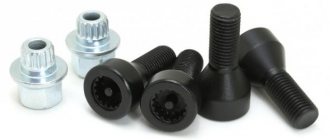One of the key questions for any car buyer is: what type of fuel to choose - gasoline or diesel? Oddly enough, the answer depends on how long you plan to drive this car...
While Europe is experiencing slight disappointment in diesel engines (for which thanks to the VW Group), here they are selling very well. Before we talk about the selection criteria, let's remember the advantages and disadvantages of each type of motor.
A gasoline engine is one that naturally runs on gasoline and in which the fuel is ignited by spark plugs. A car with such an engine traditionally turns out to be dynamic, high-speed, quiet and undemanding in terms of fuel quality. And a gasoline engine does not have some very expensive components that a diesel engine has, such as a high-pressure pump and injectors.
A diesel engine, in turn, does not have an ignition system - the fuel in it is ignited by compression. Many diesel parts have to be made very strong, so they end up being heavier and more expensive. This type of power unit today is almost always equipped with a turbine - a very complex and rather vulnerable unit. At the same time, a diesel engine has a significant advantage - it is usually 20-30% more economical than a gasoline engine. And the second key advantage of a diesel engine is high torque in the lower speed range. In motion, this is expressed as maintaining traction when the vehicle is fully loaded.
What are the differences between fuel types and how to recognize the first symptoms
Different types of fuel differ in their combustion characteristics and energy release. In addition, they have different viscosity, ignition temperature, impurity content, etc. Naturally, there are differences in the operation of power units. The air-fuel mixture for gasoline engines is distributed into the cylinders, where it is ignited using an electric spark. For a diesel engine, the process is different: under high pressure in the cylinders, the diesel fuel is compressed, causing it to become very hot and ignite.
Detonation and extraneous sounds are a key symptom of the ingress of “non-native” fuel, for which this car is not suitable - they simply poured diesel fuel into the tank instead of gasoline. Its incomplete combustion will be noticeable by black clouds of smoke from the muffler. In most cases, drivers quickly notice that something is wrong, because diesel fuel is heavier than gasoline and sinks to the bottom of the tank.
If diesel fuel gets into the fuel tank, it will separate into separate fractions if diesel fuel gets into the gasoline. Due to the lower density of gasoline, it rises to the top, while diesel fuel descends closer to the neck, where it is easily absorbed by the power unit. When mixing the air-fuel mixture, it is enriched with diesel fuel and then absorbed into the cylinders.
Fuel that is heavier in composition and mass is not intended to ignite from an electric spark. In addition, the compression ratios for gasoline engines are lower than for their diesel counterparts. All this leads to incomplete combustion of the working mixture, engine tripping and loss of operating power. Soot begins to actively form on the candles. Unburned fuel enters the oil filter through the oil sump and clogs the cylinders.
About design differences
In general, the design of both engines is the same - the crankshaft, which transmits force to the wheels of the car, rotates by the translational movement of several pistons (the number is from 3 to 12 pcs.). The latter are pushed by the energy of hot gases released as a result of the combustion of hydrocarbon fuels. This is where the difference between a gasoline and diesel engine appears - the supply and combustion of the combustible mixture occurs differently.
The gasoline version of the unit operates according to the following algorithm:
- When the piston moves to bottom dead center, a precisely dosed air-fuel mixture is supplied to the cylinder. In a system with a carburetor, it is sucked in due to the vacuum created by the piston.
- Having passed the lowest point, the piston moves upward and compresses the mixture 8–11 times (depending on the design of the engine). As a result, it is distributed throughout the volume of the combustion chamber and is heated to 400–500 °C.
- At the end of the compression stroke, a spark jumps between the electrodes of the spark plug. The fuel ignites, the chamber is filled with expanding gases, pushing the piston down. The cycle is repeated alternately in all cylinders.
The diesel engine of a gasoline engine is distinguished by the absence of spark plugs and the small volume of the combustion chamber. Accordingly, the compression ratio in the cylinders increases to 18–22 times. When moving upward, the piston compresses only air, and diesel fuel is injected into the cylinder at the very last moment. Since the air warms up to 900 °C due to strong compression, the fuel in the chamber ignites on its own, without a spark.
In order for the jet of diesel fuel from the injectors to enter the cylinders during the compression stroke, a high-pressure pump - injection pump - is used in the fuel supply system. By the way, diesel engines also have spark plugs, but they perform a different function - they warm up the fuel before injecting it into the chambers.
To understand the characteristics and behavior of two different motors, it is proposed to compare their performance. The best way to do this is to consider the advantages and disadvantages of powertrains.
What should a driver beware of?
If the first signs of such a malfunction occur, it would be right to immediately turn off your engine. Next, it is recommended to call the emergency service to evacuate the vehicle to a service station, where experienced mechanics work. There, the car will undergo diagnostics of the power unit, flushing the fuel system and tank, followed by drying, and, if necessary, replacing the filter elements. In any case, you cannot passively wait until all the fuel in the tank runs out and the car stalls, because this will result in a major overhaul.
Getting diesel fuel into a fuel system designed to use gasoline is extremely undesirable. The thing is that the pressure in the system will not be enough to ignite it. Diluted fuel will not be able to burn completely and carbon deposits will begin to intensively form in the system. Diesel fuel also contains paraffins, which clog channels and highways.
As a consequence of getting diesel fuel instead of gasoline, the driver receives the following results:
- desynchronization in the operation of cylinders;
- clogging and clogging of lines, valves, nozzles;
- the appearance of carbon deposits in the chambers;
- increased detonation processes leading to engine failure.
Gasoline instead of diesel - is it harmless?
The opposite situation can bring no less unpleasant consequences, when it is not diesel fuel that gets into the diesel power unit through the tank, but gasoline, no matter what octane number it is. However, such an engine was originally designed as a multi-fuel engine. During the winter months, it is sometimes even recommended to dilute heavier diesel fuel with gasoline.
It is dangerous when the ratio of the latter becomes predominant. The fact is that its combustion temperature is higher, so the combustion temperature in the chambers will automatically increase. At first, this will lead to a decrease in the power of the power unit, and in the future, repair of valves, gaskets, pistons and other spare parts will be required. Many modern engines are equipped with an internal lubrication system, but gasoline fuel does not have such characteristics.
Therefore, first you need to make sure that the characteristic smell of gasoline is not coming from the tank. To avoid confusion, you can compare these 2 types of fuel by color: diesel fuel is transparent, while gasoline often has a yellowish or reddish tint. But diesel engines accept foreign fuel more easily, and therefore costly repairs due to an error can be avoided.
If, for example, there is not very much gasoline, then you can dilute it with motor oil for two-stroke engines (up to 50 ml for each mistakenly filled liter). After that, fill the tank to capacity with diesel fuel. Forced draining and rinsing will be required only in cases where there is more than half a tank of gasoline. But you don’t have to worry that it will clog the fuel lines - just replace the cleaning filter.
Advantages and disadvantages of diesel engines
The main advantage of the power unit is its powerful traction force throughout the entire crankshaft speed range. Since diesel fuel is ignited by high compression and burns inside a small chamber volume, the expanding gases push the piston much harder, regardless of speed. Therefore, the engine pulls well even at idle.
Other advantages of diesel engines are as follows:
- higher efficiency of fuel combustion;
- efficiency up to 20% compared to gasoline “brethren”;
- due to the absence of an ignition system, operational reliability increases;
- for the same reason, the car is able to overcome deep fords without fear of water getting on the spark plugs;
- Diesel is cheaper than gasoline.
Engines using diesel fuel are installed in all commercial and commercial vehicles. They are also indispensable on real SUVs used in difficult conditions.
Article on the topic: Malfunctions of the rear axle gearbox and its disassembly
In Western European countries, diesel engines have become very popular due to their efficiency. Manufacturers began to equip cars of all classes with similar engines, including small cars. The introduction of new technical solutions made it possible to get rid of the characteristic “tractor” sound inherent in old foreign cars, although the power unit is still inferior to a gasoline engine in terms of noise level.
The main disadvantages of a diesel engine are as follows:
- the unit cannot be constantly operated at high speeds;
- sensitivity to low quality diesel fuel;
- noise during operation;
- expensive repairs of injectors and injection pumps;
- difficult starting during severe frosts;
- a large amount of harmful emissions.
Note. In order to improve environmental friendliness, a special particulate filter is installed on the exhaust tract of modern cars. One problem is that a “stifled” motor loses some power.
New diesels manufactured after 2000 are really quiet. But as the timing parts, valves and cylinder-piston group wear out, the sound intensifies and a familiar rattling sound appears. And in order not to lose power, drivers in the countries of the former USSR often throw away particulate filters.
What should a driver do in such a situation?
If undesirable mixing of fuel does occur, then you need to know what to do if diesel fuel gets into the gasoline, and for this it is worth remembering how much native fuel could remain in the fuel lines and system. However, you should not expect that the concentration of foreign diesel will be acceptable in order to travel some more distance. During this time, irreparable damage may be caused to the power unit, requiring major repairs.
If an unpleasant error occurs at a gas station, then under no circumstances should you try to start the engine. This will save both the engine itself and the fuel system from costly repairs. The best option is to use a tow truck or the services of a tow truck and deliver your car to a car service center, where they can drain all the fuel from the system completely and flush out the gas tank and lines from its remains.
Comparative characteristics of diesel and gasoline fuel
In order to figure out which fuel is better: diesel or gasoline, you need to compare them according to several criteria.
Price
In Soviet times, the price difference between these two types of fuel liquids was significant. A liter of the most popular gasoline could be bought for about 20 kopecks. Diesel fuel cost almost seven times less.
Today, it is impossible to say with certainty which type is cheaper. At the moment, according to the price rates of popular Russian gas stations, diesel is more expensive than AI-92, but significantly cheaper than AI-95.
However, you can’t talk about the cost of a product without mentioning how often you’ll have to buy it.
Economical
But here the palm undoubtedly belongs to diesel fuel. It is believed that this fuel is consumed approximately 35% less when driving than gasoline.
Environmental friendliness
Old cars with diesel engines cannot be called environmentally friendly. I think many people have noticed that when their exhaust gases are released, a sharp, suffocating odor appears in the air, many times greater than the harshness of the smell of gasoline vapor.
However, this happened before. Today, manufacturers have learned to make diesel engines that emit fewer harmful substances into the atmosphere than gasoline engines.
Temperatures
Here, diesel fuel cannot compare with gasoline liquids. No matter how hard manufacturers try to lower the temperature at which diesel fuel is in a liquid aggregate state, creating different types of this fuel, gasoline is still ahead.
When the most resistant diesel freezes at a temperature of 55 degrees below zero, gasoline still has a twenty-degree reserve at which it does not crystallize.
This is a very important indicator. After all, there are cases when truckers were in danger of dying from hypothermia due to the fact that diesel fuel froze in the tanks of their heavy trucks and the trucks simply stalled on deserted roads.
Therefore, if you are planning to travel a long distance in a diesel car in winter, think twice.
And of course, do not forget that with the change of seasons you will have to change the fuel. Since summer diesel fuel completely freezes at five degrees cold.
There is one more point: diesel fuel is processed at very high temperatures, which are significantly higher than the processing temperatures of other fuels. Therefore, a bulky and very important cooling system is installed in cars. Its proper operation must be monitored, otherwise the engine will overheat too often. However, if it is in good working order, there is nothing to worry about.
Impact on parts
Diesel fuel is still a lower quality fuel than, for example, AI-95. Because of this, the injectors through which the combustible mixture is regularly injected often fail in diesel engines.
They also periodically clog in cars that refuel with gasoline, but not so often.
Possible consequences for the car owner
The list of works and the approximate amount of losses in financial terms will depend on the severity of the damage caused to the engine and fuel system due to the fact that diesel fuel was poured instead of gasoline. The most serious consequence is a major overhaul of the power unit or its replacement. An approximate set of actions could be as follows:
- complete draining of remaining fuel followed by washing the gas tank;
- flushing fuel lines;
- washing engine injectors;
- changing spark plugs;
- changing the fuel filter;
- change the oil in the system and the oil filter.
Of course, modern automakers have worked out some precautions to prevent diesel fuel from getting into a car designed for gasoline. For example, at gas stations, so-called “guns” have different tip diameters. The diesel sting is wider - its diameter is 25 mm. instead of 21 mm. It follows from this that inserting a wider tip will not work due to physical characteristics.
Therefore, at the first difficulties with the refueling process, you should take a look at the inscription above the hose - perhaps you will be able to find the letters DT there. However, this was not always followed in older model cars because there was not as much emphasis placed on such standards at the time. Situations often arise when the wrong fuel is poured into the neck of a canister. In short, tens of thousands of similar situations occur every year in the world.
To summarize, the entry of diesel fuel into the tank of a gasoline-powered car poses a direct threat of significant costs for its repair. That is why it is absolutely forbidden to start the engine, in order to get by with just replacing the lines and the fuel tank. Filling the gas tank completely under the filler neck will not help in this situation. Unlike a gasoline engine, the ingress of gasoline into a diesel engine is not so dangerous, and in some cases it is even allowed.
Which fuel is better or how to choose the right gasoline or diesel fuel?
Another one of our not quite computer topics, but the topic is necessary and if there is a reason to find out which fuel is considered good or better, then we will do it. So. What is better: gasoline or diesel fuel? Naturally for a car.
Well, let's start with the fact that a lot depends on the type of car you have. If you, for example, have a tractor or other diesel equipment, then diesel fuel will be the best “gasoline” for you.
In other cases, if you have a carburetor or injection engine, you will need regular gasoline. It is divided into several types. And they are designated at gas stations as AI 76, 80, 92, 93, 95 , 98 - these are the most popular brands.
You can find out which one is suitable for your car from the instructions for your engine. In most cases, for modern passenger cars, the following are suitable: 92, 93 and 95. For higher-class cars, as well as for all sports cars, the highest octane is suitable - 98. In Russia, 98 is not common because it is usually expensive and not suitable for every car.
The most important thing when buying gasoline is to make sure that it does not contain impurities: mechanical sediments, oils. Sometimes water gets into gasoline in the form of condensation. This is also bad for the car. It is not possible for an ordinary driver to check this on his own.
The only thing you can do is ask the gas station to show a certificate for the delivered batch of gasoline, but, as you know, if in Russia they even manage to counterfeit gasoline, then coming up with a certificate is a piece of cake for them.
A good option is to ask about the quality of gasoline from familiar drivers who constantly refuel at one or another gas station. But, perhaps, the best option would be to identify in advance those gas stations that purchase gasoline from the same plant, are in demand and have no negative reviews, and then refuel only there.
But this is only good in your own city. How do you know which gasoline is better for long trips? If you take care of your car and don’t trust gas stations on the highway, you can take a couple of cans with you. This will not only give you confidence that you won’t dry out on the road, but also confidence in your fuel.
This is especially important in winter, when bad gasoline may not allow you to start your car in cold weather. The recommended brand for choosing gasoline is AI-95. By the way, the most popular gasoline in developed countries, which came to Russia only 15-20 years ago.
Conclusion. Only fill up at gas stations you trust. Make sure that the hose markings match the brand of gasoline you buy. On a long journey, try to take a can of gasoline with you. Ask for fuel documents if in doubt.
To make sure you have chosen the right gasoline or not, always listen to the behavior of the engine after refueling. Sound, power, smell and color of exhaust gases.
If you feel any deviations, be sure to contact the consumer protection society or at least warn your familiar drivers about the suspicion of low-quality gasoline.
In this way, we will all protect our engines together, and our gas tanks will always contain only high-quality gasoline for our vehicles!
Good luck on the roads of the country!









